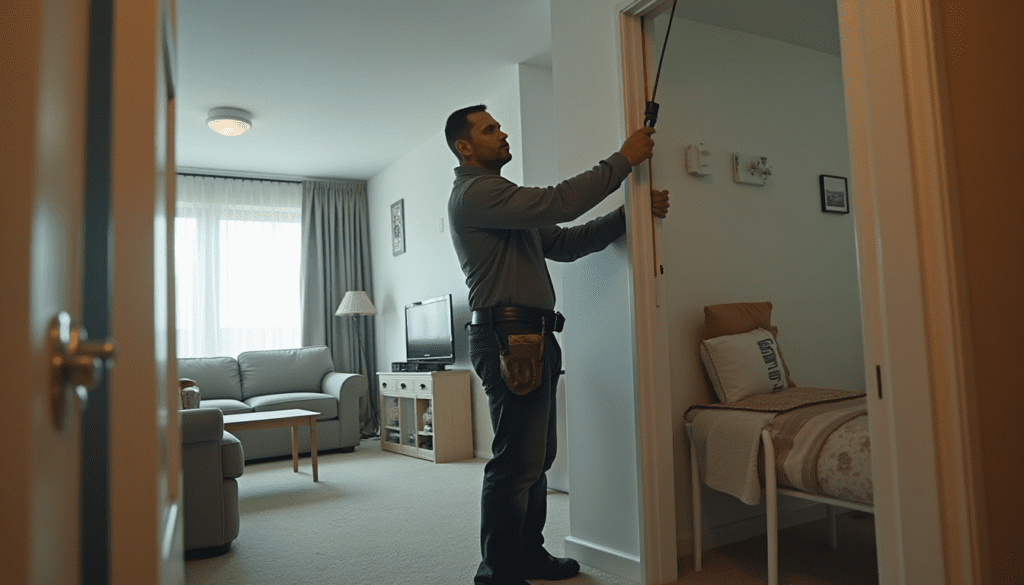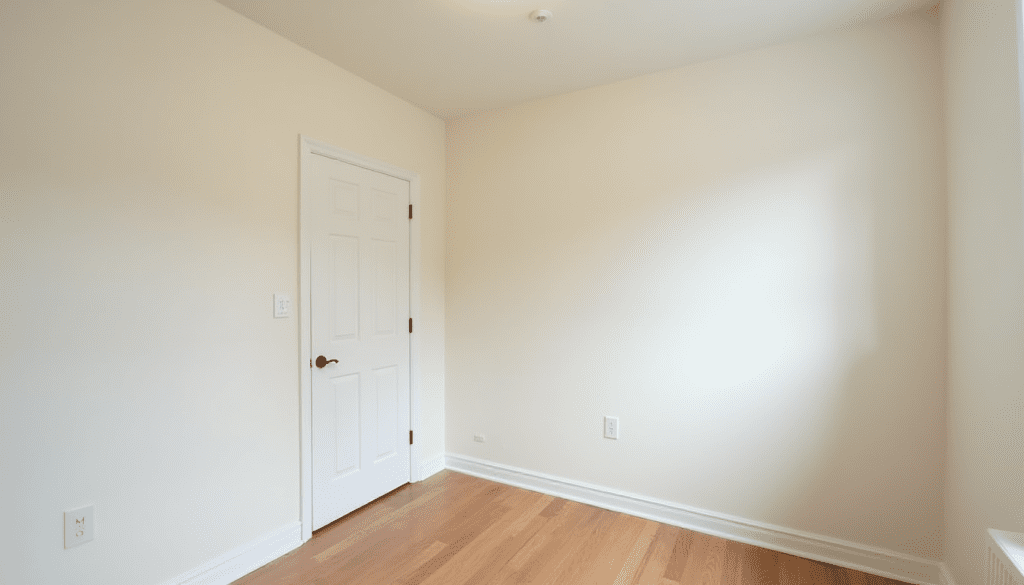Understanding the eviction process and its timeline is crucial for landlords and tenants alike—especially in the borough of Verona, NJ, where state law governs the proceedings. In this section we’ll walk through how eviction works in New Jersey, what triggers it, and the typical timing you can expect. Getting clarity early on ensures you stay compliant, avoid costly mistakes, and understand your rights (or obligations).
1. Introduction: Understanding Eviction Timelines in Verona, NJ
In Verona, as elsewhere in New Jersey, the eviction process isn’t simply about asking a tenant to leave—it’s a legal sequence of steps anchored in the state statute New Jersey Statutes Annotated § 2A:18 61.1 et seq. and related provisions. :contentReference[oaicite:1]{index=1} Whether you’re a property manager, landlord or tenant, knowing the timeline helps you set expectations, coordinate paperwork, and avoid illegal practices (like lock-outs or utility shutoffs) that are prohibited. :contentReference[oaicite:2]{index=2}
Typically, the total process—from the initial notice to the actual removal of the tenant—can range from **three weeks to three months** in many cases in New Jersey. :contentReference[oaicite:3]{index=3} However, the exact timing depends heavily on various factors: reason for eviction, whether the tenant contests the case, and how busy the county court docket is. In Verona (in Essex County), local quirks may add additional time, so it’s wise to plan ahead.
2. What Triggers an Eviction in Verona and New Jersey
Eviction cannot simply happen at will. In New Jersey, a landlord must have “good cause” to file for eviction under the Anti-Eviction Act. :contentReference[oaicite:4]{index=4} Some of the common triggers include:
- Non-payment of rent. A tenant fails to pay rent when due. In such cases, the landlord may move immediately to file suit without a prior written notice to quit. :contentReference[oaicite:5]{index=5}
- Lease or rental-agreement violation. This might include keeping unauthorized pets, smoking in a no-smoking unit, subletting without permission, or other breaches of the lease. Notice required often is 30 days or more. :contentReference[oaicite:6]{index=6}
- Disorderly conduct, illegal activity or serious damage. If the tenant engages in illegal behavior (such as drug activity, violence, major property damage) or poses a serious threat to health and safety, a 3-day notice to quit may apply. :contentReference[oaicite:7]{index=7}
- End of lease, month-to-month termination, or landlord’s personal occupancy. If the landlord intends to occupy the unit, or is converting the property, different notice periods apply. :contentReference[oaicite:8]{index=8}
For Verona landlords and property managers, it’s essential to ascertain which category you’re dealing with up front—non-payment, lease violation, or serious misconduct—as this determines the required notice and thus affects the timeline.
3. Overview of the Legal Eviction Process in New Jersey
Once the notice stage is complete (or immediately in some non-payment cases), the formal eviction process in New Jersey proceeds through a series of defined steps—from filing to physical removal. Here’s a breakdown:
Step 1: Notice to Tenant
Depending on the trigger, the landlord serves the appropriate notice: a “Notice to Quit,” “Notice to Cease,” or “Notice to Quit Immediately.” For non-payment of rent, the law allows immediate filing (no advanced notice) in many cases. :contentReference[oaicite:9]{index=9} For lease violations, typically 30 days; for illegal activity, 3 days. :contentReference[oaicite:10]{index=10}
Step 2: Filing a Verified Complaint and Summons
If the tenant fails to comply with the notice, the landlord files a verified complaint in the Superior Court (Special Civil Part – Landlord-Tenant Section) and serves the tenant with a summons. :contentReference[oaicite:11]{index=11}
Step 3: Court Hearing and Judgment for Possession
The court schedules a hearing. If the landlord proves the case, the court issues a Judgment for Possession. :contentReference[oaicite:12]{index=12} After judgment, the landlord must wait (in many counties) at least three business days before applying for a warrant of removal. :contentReference[oaicite:13]{index=13}
Step 4: Warrant and Physical Eviction
Once the warrant is issued, a court officer or sheriff executes the removal. The tenant is physically removed and the landlord regains possession. Self-help (changing locks, shutting off utilities) is illegal. :contentReference[oaicite:14]{index=14}
In practice: while the law outlines these steps, real-world scheduling (court backlog, tenant defense filings, stays of execution) can extend timelines beyond the minimum. :contentReference[oaicite:15]{index=15}
4. Notice Requirements Before Eviction (By Reason for Eviction)
The notice a landlord must give in Verona/New Jersey depends entirely on the reason for eviction. Knowing these distinctions is vital for staying compliant and avoiding wrongful eviction liability. :contentReference[oaicite:16]{index=16}
- Non-payment of rent: The landlord may file immediately in many cases, although some local practices allow or require a rent-demand letter. :contentReference[oaicite:17]{index=17}
- Lease violation (non-rent related): Generally a 30-day Notice to Quit is required. :contentReference[oaicite:18]{index=18}
- Serious misconduct (illegal activity, damage, disorderly conduct): A 3-day Notice to Quit often applies. :contentReference[oaicite:19]{index=19}
- Month-to-month termination without cause: A 30-day notice is typical. :contentReference[oaicite:20]{index=20}
- Landlord taking property off market or converting to condo: Longer notice periods (60 days or more, up to 3 years in conversion cases). :contentReference[oaicite:21]{index=21}
Given these variations, a Verona landlord should clearly document which type of notice is given, when it is served, and how (personal delivery or adult family member service) since improper notice can invalidate the eviction. :contentReference[oaicite:22]{index=22}
5. Filing the Complaint: What Happens Next
After the notice period has expired (or immediately in certain cases), the next phase begins. This stage is often where the timeline starts to stretch. In Verona/New Jersey the following occurs:
First, the landlord files the eviction complaint in the appropriate court. The complaint must attach copies of the original notice and any other required documentation. :contentReference[oaicite:23]{index=23} Service of the summons and complaint must then occur—this triggers the tenant’s option to appear and defend the matter. :contentReference[oaicite:24]{index=24}
Once served, the court sets a hearing. Timing of the hearing depends on how busy the local Superior Court (Special Civil Part) docket is. In many New Jersey counties, you’ll see scheduling in the range of two to six weeks. :contentReference[oaicite:25]{index=25}
At the hearing, the landlord presents evidence (lease, notices, accounting of unpaid rent or violations) and the tenant may respond. If the landlord wins, the court enters a judgment for possession. :contentReference[oaicite:26]{index=26}
After the judgment, the landlord applies for a warrant of removal. The landlord must wait the minimum statutory period (often three business days) before removal may be executed. Local practice may add scheduling time. :contentReference[oaicite:27]{index=27}
In many cases in New Jersey, if there are no defenses and scheduling is smooth, the process closes out in about 1-3 months. Many property-management professionals use that benchmark when advising landlords. :contentReference[oaicite:28]{index=28}
So for Verona property managers: once the complaint is filed, allow at least 30-60 days (and more realistically 60-90 days when contested) before expecting full vacancy. It’s best to plan for this timeframe and inform all stakeholders accordingly.
6. Court Hearings and Tenant Rights
Once a complaint is filed and served, the next major stage in the Verona, NJ eviction process is the court hearing. In Essex County, these hearings take place in the Superior Court, Special Civil Part, Landlord-Tenant Section. The hearing is the tenant’s opportunity to respond, present defenses, and seek relief—making it a critical part of the process.
Under New Jersey law, the court must ensure that both parties have been properly notified. If a tenant fails to appear, the court may enter a default judgment for possession. If both parties appear, the judge typically encourages settlement before proceeding to a full hearing. ([njcourts.gov](https://www.njcourts.gov/self-help/landlord-tenant?utm_source=chatgpt.com))
Common Tenant Defenses
- Improper notice: The notice period or method of delivery didn’t meet legal standards.
- Rent paid or accepted after notice: If a landlord accepts rent after filing, it may reset the process.
- Uninhabitable living conditions: If the property violates the implied warranty of habitability, the court may delay or deny eviction.
- Retaliation or discrimination: Tenants are protected from eviction attempts based on retaliation (for reporting issues) or discrimination. ([lawdistrict.com](https://www.lawdistrict.com/articles/eviction-process-new-jersey?utm_source=chatgpt.com))
During hearings, landlords should bring all documentation: lease agreements, notices served, payment records, and communication logs. Tenants may bring receipts, photos, or correspondence to support defenses. A well-documented file helps speed up the hearing and avoid continuances that can stretch timelines.
Following the hearing, if judgment is entered for the landlord, the court issues a “Judgment for Possession.” This does not yet authorize eviction—it simply gives the landlord the right to request a warrant of removal. The tenant still has the right to request a stay or pay arrears to avoid eviction, depending on the case type.
7. How Long Does the Eviction Process Take in New Jersey?
Eviction timelines vary depending on the reason for eviction, court schedules, and whether the tenant contests the case. On average, the New Jersey eviction process—from notice to possession—can take **30 to 90 days**. In Verona, which falls under Essex County, court volume often pushes the process closer to the 60–90 day mark. ([doorloop.com](https://www.doorloop.com/laws/new-jersey-eviction-process?utm_source=chatgpt.com))
Here’s a general breakdown:
- Notice period: 3 to 30 days (depending on cause).
- Complaint filing to court date: 2 to 6 weeks.
- Judgment to warrant of removal: 3 business days minimum.
- Total average duration: 1 to 3 months.
However, several factors can extend this timeline:
- Tenant filing defenses or counterclaims.
- Court backlog or continuances.
- Tenant applying for hardship stays or rental assistance.
- Errors in notice or filing documentation that require refiling.
Once the warrant of removal is issued, the court officer serves it—usually within three business days—and schedules the lockout. The tenant is given final notice before removal occurs. Self-help evictions (changing locks or removing belongings without a warrant) remain strictly prohibited in New Jersey. ([nolo.com](https://www.nolo.com/legal-encyclopedia/the-eviction-process-new-jersey-rules-landlords-property-managers.html?utm_source=chatgpt.com))
8. Comparison: Eviction Timelines by State (Quick Reference Table)
While this article focuses on Verona, NJ, it helps to compare how timelines differ across states. New Jersey’s process is among the more tenant-friendly, emphasizing due process and written notice. Below is a simplified comparison of average eviction durations:
| State | Average Eviction Duration | Notice Period |
|---|---|---|
| New Jersey | 30–90 days | 3–30 days (varies by cause) |
| New York | 60–120 days | 14–30 days |
| Pennsylvania | 21–60 days | 10 days |
| Delaware | 30–75 days | 5–60 days |
| Florida | 20–45 days | 3 days (nonpayment) |
These variations highlight that New Jersey’s process, including Verona, sits on the longer side due to its strong tenant protections and strict procedural rules. Property owners operating in multiple states should understand each jurisdiction’s nuances to plan effectively. ([azibo.com](https://www.azibo.com/blog/new-jersey-eviction-laws?utm_source=chatgpt.com))
9. Factors That Can Delay the Eviction Process
Several factors can stretch the timeline beyond the average. In Verona, where the court system can experience higher caseloads, understanding these delays can help landlords manage expectations.
- Tenant defenses: Filing counterclaims or disputes can result in multiple hearings.
- Improper documentation: Missing or inaccurate notices force landlords to restart the process.
- COVID-era holdovers: Although statewide moratoriums ended, some tenants still qualify for hardship stays under residual programs.
- Scheduling delays: Essex County courts often face scheduling bottlenecks.
- Tenant’s partial payments: Courts may delay eviction if tenants enter payment agreements.
Each of these can extend the process from weeks to months. For landlords managing multiple units, it’s wise to budget extra time and work with an experienced property manager or attorney who knows Verona’s local court system. ([robinsonlawllc.com](https://www.robinsonlawllc.com/landlord-representation/how-long-does-an-eviction-take/?utm_source=chatgpt.com))
10. Fast-Tracking an Eviction: When It’s Legally Possible
While most evictions must follow the standard process, certain urgent cases allow for expedited removal. This is typically reserved for situations involving illegal activity, property damage, or threats to safety. In these cases, the landlord may issue a 3-day Notice to Quit and immediately proceed to court. ([doorloop.com](https://www.doorloop.com/laws/new-jersey-eviction-process?utm_source=chatgpt.com))
However, “fast-tracking” doesn’t mean bypassing due process—it simply means the court may prioritize these cases on its docket. Even so, documentation must be airtight. Lawful evidence such as police reports, photos, or witness statements should accompany filings. Improperly handled urgent evictions can lead to dismissal or even landlord liability.
For Verona landlords dealing with disruptive tenants, consulting legal counsel before filing is strongly advised. A qualified property management company familiar with Essex County procedures can also help ensure compliance and faster resolution.
11. Tips for Landlords to Ensure Compliance
Evictions in Verona, NJ, must strictly adhere to state and local laws to prevent costly delays or legal backlash. The smallest procedural error—like an incorrect notice or missing signature—can result in case dismissal. Landlords who take a proactive and organized approach not only stay compliant but also streamline the entire process. Below are essential tips for ensuring full compliance.
1. Document Everything
Keep thorough records of rent payments, communications, maintenance requests, and notices served. Documentation provides essential proof during hearings and helps establish credibility with the court. Use digital property management platforms to track communications and payment timelines.
2. Use Legally Valid Notices
Notices must comply with the New Jersey Anti-Eviction Act, specifying the exact reason for eviction and providing the proper notice period. Templates from official resources like NJ Courts or guidance from licensed attorneys ensure accuracy.
3. Never Attempt “Self-Help” Eviction
Locking out tenants, removing their belongings, or cutting off utilities without a court order is illegal in New Jersey. Doing so can lead to heavy fines, civil penalties, or lawsuits. Always wait for the sheriff or court officer to perform the official removal.
4. Hire a Property Management Company
For landlords who find the legal details overwhelming, hiring a property management firm like RentShield Property Management in Verona, NJ, can help. They handle everything from notice preparation and filing to court appearances and tenant communication, ensuring full legal compliance while saving landlords time and stress.
By following these steps, Verona landlords can minimize delays, maintain professionalism, and protect their investments throughout the eviction process.
12. Tenant Protections and How to Respond to an Eviction Notice
Tenants in Verona and throughout New Jersey have several legal protections that ensure due process and fairness. The state’s Anti-Eviction Act (N.J.S.A. 2A:18-61.1 et seq.) prevents landlords from removing tenants without legitimate cause and provides clear steps for responding to an eviction notice.
What Tenants Should Do Upon Receiving a Notice
- Read the notice carefully. It should specify the reason for eviction and the time allowed to remedy the issue.
- Communicate with the landlord. If the issue involves unpaid rent, many landlords are open to payment plans or settlements before filing.
- Seek legal advice early. Legal aid services in Essex County, such as Legal Services of New Jersey, can assist low-income tenants facing eviction.
- Gather evidence. Tenants should keep rent receipts, maintenance requests, and photos to support their defense.
New Jersey law also prohibits retaliation—landlords cannot evict a tenant simply for reporting housing violations or requesting repairs. Tenants who believe their eviction is retaliatory can raise this defense in court. Additionally, discrimination based on race, disability, gender, or family status violates both federal and state Fair Housing Acts. ([nj.gov/dca](https://www.nj.gov/dca/codes/publications/pdf_lti/grnds_for_evicti_bulltin.pdf?utm_source=chatgpt.com))
Tenants who receive a Judgment for Possession still have limited options: they may apply for a stay of execution or negotiate payment arrangements to remain in the property temporarily. Communication and legal representation are key to navigating this challenging stage.
13. How Verona NJ’s Local Ordinances Affect the Eviction Timeline
While New Jersey law governs the bulk of eviction procedures, local ordinances in Verona and Essex County can subtly influence timing and procedure. Verona follows Essex County’s jurisdiction for eviction filings, but municipal policies may affect enforcement speed, inspection requirements, or local landlord obligations.
- Rental property registration: Verona requires all landlords to maintain an up-to-date rental registration. Unregistered properties may face delays in eviction filings.
- Certificate of Habitability: Before renting or re-renting a property post-eviction, landlords must ensure valid certificates are on file.
- Health and safety inspections: The Verona Health Department may conduct inspections during certain eviction proceedings involving code violations.
Additionally, local law enforcement availability influences how quickly sheriffs can execute warrants of removal. In busy Essex County, court officers often operate on a backlog, extending the time between issuance and execution. Understanding these local dynamics helps landlords and property managers plan for realistic timelines.
It’s worth consulting Verona’s municipal code and property management experts familiar with Essex County courts to ensure compliance. You can refer to RentShield Property Management’s resources for Verona landlords for additional guidance and updates.
14. Best Practices for Documenting and Managing Rental Issues
Proper documentation is not only vital for evictions—it’s essential for all stages of rental management. By maintaining organized records, landlords in Verona can prevent misunderstandings and have stronger cases when disputes arise.
Recommended Documentation Practices
- Maintain digital records: Use secure cloud-based systems for leases, rent receipts, and notices. This ensures accessibility and proof of authenticity.
- Log maintenance and communication: Always document requests, repairs, and responses to demonstrate responsiveness.
- Track lease renewals and rent increases: Timely and written communication about renewals avoids disputes that could escalate to eviction.
- Use written agreements for payment plans: Verbal promises can lead to confusion—written and signed agreements are enforceable evidence.
Good recordkeeping minimizes errors, protects both landlord and tenant rights, and demonstrates professionalism. When disputes do occur, a well-documented file can make the difference between a quick resolution and a drawn-out eviction battle.
Verona landlords can use these practices in combination with property management tools offered by RentShield Property Management, which helps automate rent tracking and legal documentation for smooth operations.
15. How Property Management Companies Help Streamline Evictions
Evictions can be stressful and time-consuming, particularly for landlords managing multiple units or dealing with complex tenant issues. Professional property management companies simplify this process through expertise, legal compliance, and established systems.
Companies like RentShield Property Management assist Verona landlords by:
- Drafting and serving compliant notices.
- Filing court documentation and coordinating with attorneys.
- Attending hearings and providing representation support.
- Managing communication between tenants and legal counsel.
- Ensuring re-rental readiness after eviction (repairs, inspections, advertising).
By outsourcing these steps, landlords minimize the risk of procedural errors and avoid unnecessary legal exposure. Partnering with a local expert familiar with Essex County’s eviction environment provides faster, more compliant outcomes.
16. Key Legal Resources and Where to Find Help
Understanding and navigating the eviction process in Verona, NJ, requires more than knowing the laws—it requires access to the right resources. Whether you’re a landlord managing compliance or a tenant seeking support, the following legal and government organizations can guide you through each stage of the eviction process.
Official and Government Resources
- New Jersey Courts – The official state judiciary website provides all eviction forms, filing instructions, and court contact details.
- New Jersey Department of Community Affairs (DCA) – Offers housing assistance, landlord registration info, and tenant rights education.
- NJ Department of Human Services – Assists tenants seeking rental assistance or emergency housing programs.
- Township of Verona Official Website – Includes municipal codes, rental property registration, and inspection requirements for landlords.
Legal Assistance for Tenants
- Legal Services of New Jersey (LSNJ) – Provides free legal aid to low-income residents facing eviction.
- Essex County Legal Aid Association – Local support for tenants in Verona and surrounding Essex County communities.
- Nolo Legal Guides – Offers easy-to-understand summaries of New Jersey landlord-tenant law.
Support for Landlords
- RentShield Property Management – Provides local eviction assistance, property management, and compliance services in Verona, NJ.
- New Jersey Apartment Association (NJAA) – Offers advocacy, education, and best practice guidance for landlords and property owners.
- Private landlord-tenant attorneys – Hiring a qualified attorney ensures that each notice, filing, and court appearance follows current New Jersey law.
These resources help ensure you’re acting within the law, understand your rights, and are equipped with the correct forms and procedures. Staying connected to official updates—especially after major housing legislation changes—can prevent costly mistakes and delays during eviction cases.
17. Conclusion: Staying Informed and Compliant
Eviction in Verona, NJ, is a structured process governed by state law and local ordinances. The timeline, while often extending between 30 and 90 days, depends on the reason for eviction, tenant defenses, and court scheduling. By following the correct legal procedures, maintaining detailed documentation, and seeking guidance from professional property management firms, landlords can navigate this process more efficiently and lawfully.
Tenants, on the other hand, should understand their rights under New Jersey’s Anti-Eviction Act. Awareness of notice requirements, defenses, and available assistance programs can make a significant difference in preserving housing stability or resolving disputes fairly.
Ultimately, both landlords and tenants benefit from transparency, communication, and knowledge of the law. By staying informed and compliant, Verona’s rental community can foster professionalism, minimize disputes, and maintain a fair housing environment for all.
18. Disclaimer
Legal Disclaimer: This blog post is intended for informational and educational purposes only. It does not constitute legal advice and should not be relied upon as such. Landlord-tenant laws can change frequently, and local ordinances may impose additional requirements. For case-specific guidance, always consult a licensed New Jersey attorney or a qualified legal professional familiar with eviction procedures in Essex County and Verona.
19. Frequently Asked Questions (FAQ)
How long does it take to evict a tenant in Verona, NJ?
On average, evictions in Verona take 30 to 90 days from notice to possession. Timelines vary depending on the reason for eviction, court scheduling, and tenant defenses.
Can a landlord evict a tenant without notice in New Jersey?
Only in specific cases of non-payment of rent can a landlord proceed without prior written notice, although most landlords still issue a demand letter. All other causes require written notice according to New Jersey law.
Who enforces eviction orders in Verona?
Eviction orders are enforced by court officers or the Essex County Sheriff’s Office. Landlords are prohibited from personally removing tenants or changing locks.
Can tenants stop eviction after a judgment?
Tenants may apply for a stay of eviction, appeal the decision, or negotiate payment arrangements with the landlord, depending on the circumstances.
What are the most common eviction mistakes landlords make?
Improper notice delivery, accepting rent after filing, missing documentation, and attempting self-help evictions are among the top mistakes that cause delays or dismissals.
20. Final Call to Action
If you’re a Verona, NJ landlord seeking guidance on eviction procedures, timelines, or compliance, contact RentShield Property Management. Their experienced team provides end-to-end eviction support, property management solutions, and compliance assistance tailored to Essex County regulations. Stay compliant, save time, and protect your property investment with local experts who understand New Jersey’s housing laws.
Disclaimer: This content is for educational purposes only and does not replace professional legal advice. Always consult a qualified attorney for your specific eviction case.







